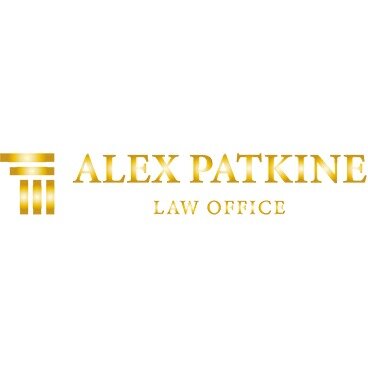Best Environmental Law & Compliance Lawyers in Haifa
Share your needs with us, get contacted by law firms.
Free. Takes 2 min.
List of the best lawyers in Haifa, Israel
About Environment Law in Haifa, Israel
Haifa, one of Israel's major cities, is situated on the Mediterranean coast and is an industrial and cultural hub. Environment law in Haifa seeks to protect the natural surroundings, promote sustainable development, and mitigate the impact of industrial activities. Policies and regulations in Haifa aim to address critical environmental issues such as air and water quality, waste management, and the preservation of natural areas. The legal framework is enforced by several governmental agencies and complemented by local initiatives aimed at preserving the environment for future generations.
Why You May Need a Lawyer
There are numerous situations in which individuals or businesses may require legal assistance regarding environmental issues. Common scenarios include:
- Compliance with local and national environmental regulations
- Dealing with pollution or contamination claims
- Environmental impact assessments for construction or industrial projects
- Disputes related to waste disposal and management
- Representation in legal actions involving environmental violations
- Advice on sustainable business practices
- Litigation involving land use and zoning in relation to environmental concerns
Local Laws Overview
Haifa’s environmental policies are part of broader national regulations. Key aspects include:
- Clean Air Act: Establishes limits on air pollutants and requires industries to obtain permits and adhere to specific emissions standards.
- Water Law: Protects water sources by regulating discharges into water bodies, ensuring safe drinking water, and promoting water conservation.
- Waste Management Law: Governs the disposal and treatment of household, industrial, and hazardous wastes, emphasizing recycling and safe disposal practices.
- National Parks and Nature Reserves Law: Protects natural areas, forests, and wildlife habitats, and sets guidelines for their use and conservation.
- Land Law: Addresses issues of soil contamination and remediation, and regulates land use to prevent environmental degradation.
Frequently Asked Questions
What is an Environmental Impact Assessment (EIA)?
An EIA is a study conducted to assess the potential environmental effects of a proposed project. It helps in decision-making by predicting the impact on the environment and suggesting mitigation measures.
Who enforces environmental laws in Haifa?
The Ministry of Environmental Protection is the primary body responsible for the enforcement of environmental laws in Haifa, supported by municipal authorities and other regulatory agencies.
What should I do if I suspect environmental contamination on my property?
If you suspect contamination, you should immediately contact the local environmental authority to report the issue and seek professional legal advice to understand your rights and responsibilities.
Are there any incentives for businesses to adopt green practices in Haifa?
Yes, there are various incentives such as tax benefits, grants, and subsidies for businesses that adopt environmentally friendly practices and technologies.
Can I take legal action against a company polluting the environment?
Yes, individuals and groups can take legal action against entities that violate environmental laws through civil lawsuits or by reporting to regulatory bodies.
What are the penalties for violating environmental laws in Haifa?
Penalties can range from fines and sanctions to the suspension of operational licenses and even criminal charges, depending on the severity of the violation.
How can I find out if a new development project will affect the environment?
Public notices are typically issued for major projects, and you can review the EIA reports, which are often available through local government or environmental authority websites.
What legal rights do communities have concerning environmental protection in Haifa?
Communities have the right to access information, participate in public hearings, and seek legal remedies if they are adversely affected by environmental issues.
Do I need a permit to make changes to my property that could impact the environment?
Yes, certain changes, especially those involving construction, land use, or potential pollution, may require permits from local authorities.
How frequently are environmental laws updated in Haifa?
Environmental laws are reviewed and updated regularly to reflect new scientific insights, technological advancements, and evolving policies aimed at sustainable development.
Additional Resources
Several resources can provide valuable information and assistance:
- Ministry of Environmental Protection
- Haifa Municipality Environmental Protection Department
- Environmental NGOs such as Adam Teva V'Din (Israel Union for Environmental Defense)
- Local legal aid clinics specializing in environmental law
Next Steps
If you need legal assistance with environmental issues in Haifa, consider the following steps:
- Identify and document the specific environmental concern.
- Consult with a specialized environmental lawyer to understand your legal options and rights.
- Gather any relevant documents, permits, or evidence related to the issue.
- Contact local regulatory authorities for guidance or to report violations.
- Consider joining or forming community groups to address widespread environmental issues collectively.
- Stay informed about local environmental policies and participate in public consultations.
Seeking professional legal advice early can help navigate the complexities of environmental law and ensure the protection and preservation of Haifa’s natural resources.
Lawzana helps you find the best lawyers and law firms in Haifa through a curated and pre-screened list of qualified legal professionals. Our platform offers rankings and detailed profiles of attorneys and law firms, allowing you to compare based on practice areas, including Environmental Law & Compliance, experience, and client feedback.
Each profile includes a description of the firm's areas of practice, client reviews, team members and partners, year of establishment, spoken languages, office locations, contact information, social media presence, and any published articles or resources. Most firms on our platform speak English and are experienced in both local and international legal matters.
Get a quote from top-rated law firms in Haifa, Israel — quickly, securely, and without unnecessary hassle.
Disclaimer:
The information provided on this page is for general informational purposes only and does not constitute legal advice. While we strive to ensure the accuracy and relevance of the content, legal information may change over time, and interpretations of the law can vary. You should always consult with a qualified legal professional for advice specific to your situation.
We disclaim all liability for actions taken or not taken based on the content of this page. If you believe any information is incorrect or outdated, please contact us, and we will review and update it where appropriate.















